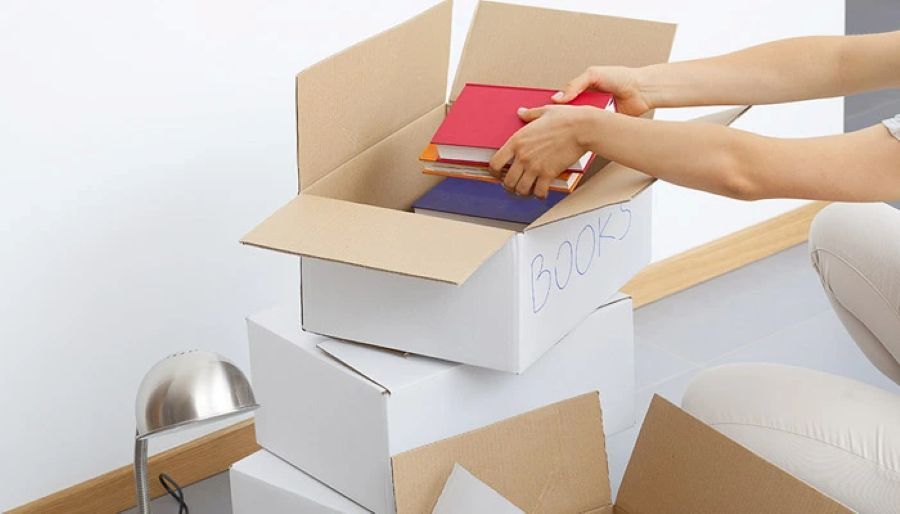Moving Confidential Documents Safely and Securely
You can move confidential documents safely and securely by following proper packing methods, choosing trusted movers, and maintaining constant supervision throughout the process. This guide will show you exactly how to protect your sensitive information during any move, whether it's personal papers or business records.
Moving sensitive documents like tax returns, medical records, or business files requires special care. One small mistake can lead to identity theft, legal problems, or costly data breaches. According to IBM's Cost of a Data Breach Report, the average cost of a data breach reached an all-time high in 2024 of $4.88 million, a 10% increase from 2023. When you're moving, your documents are more vulnerable than ever. But with the right plan, you can keep them safe every step of the way.
Why Moving Confidential Documents Is Risky
Moving creates many chances for things to go wrong. Your papers might get lost, stolen, or damaged. Sometimes no matter how vigilant you may be, hiring the wrong moving company may lead to identity theft. Here's what makes moving so dangerous for sensitive documents:
Common Risks During Moves
When you move, lots of people handle your stuff. Movers, truck drivers, and storage workers all touch your boxes. If your documents aren't properly protected, anyone could see them. With so much going on, there's more of an opportunity for individuals with bad intentions (identity theft, for instance) to take sensitive information without being detected.
Your documents might also get mixed up with other items. A folder could fall out of a box, or papers could get wet if it rains. During the chaos of moving, it's easy to lose track of important files.
What Hackers Want From Your Documents
Identity thieves love moving days because people are distracted and documents are exposed. They look for:
- Social Security numbers
- Bank account information
- Medical records
- Tax documents
- Legal papers
- Business contracts
According to the Bureau of Justice Statistics, in 2021, about 23.9 million people had been victims of identity theft during the prior 12 months. Don't let your move make you the next victim.
How To Pack Confidential Documents For Moving
The way you pack your sensitive documents can make or break your move's security. Never just throw important papers into random boxes with your other stuff.
Choose The Right Packing Materials
Start with high-quality supplies that can protect your documents from damage and prying eyes:
Best packing options:
- Waterproof document boxes with secure lids
- Fireproof filing containers for super important papers
- Clear plastic sleeves to protect individual documents
- Tamper-proof security bags for the most sensitive files
Use high-quality packing materials to protect your documents from damage. Sturdy, water-resistant boxes are ideal for transporting sensitive papers.
Smart Labeling Strategies
How you label your boxes matters a lot. Don't write "CONFIDENTIAL" or "TAX RECORDS" on the outside - this tells everyone what's inside. Instead, use code words that only you understand. For example, call your tax box "Kitchen Utensils" or your medical records "Bedroom Linens."
Label each box clearly with its contents, but avoid using specific terms like "confidential" on the outside to prevent drawing attention to their sensitive nature.
Keep The Most Important Papers With You
Some documents are too important to pack with everything else. Keep these with you during the move:
- Passports and driver's licenses
- Birth certificates and Social Security cards
- Insurance policies
- Financial account information
- Legal documents like wills or contracts
For the most sensitive documents, such as passports, social security cards, and financial records, consider keeping them with you during the move.
Digital Backups: Your Safety Net
Before you pack a single box, scan your important documents and save digital copies. This way, even if something happens to the physical papers, you still have the information you need.
How To Create Secure Digital Backups
Step-by-step process:
- Scan documents at high quality (300 DPI or higher)
- Save files with clear, searchable names
- Store copies in multiple secure locations
- Use password protection for sensitive files
Creating digital backups of your important documents is a crucial step in protecting your information. Scan and save digital copies of your sensitive papers on a secure cloud storage service or an external hard drive.
Best Places To Store Digital Copies
Don't put all your digital eggs in one basket. Store copies in several secure places:
- Password-protected cloud storage (like Google Drive or Dropbox)
- Encrypted external hard drives
- USB drives kept in separate locations
- Email them to yourself (password-protected files only)
Choosing Safe Movers For Document Transport
Not all moving companies are created equal when it comes to handling sensitive documents. Thelocal movers you choose can make a huge difference in keeping your information secure.
What To Look For In A Moving Company
Key qualities of trustworthy movers:
- Proper licensing and insurance
- Background-checked employees
- Experience with confidential materials
- Positive reviews from recent customers
- Clear policies about document handling
Take the initiative to call companies and ask questions. Read reviews, speak with previous customers, and investigate their reputation. A reputable moving company should easily be able to provide details explaining how they ensure personal information stays private and protected throughout the process.
Questions To Ask Potential Movers
Before hiring any moving company, ask these important questions:
- Are all employees background checked?
- What's your policy for handling confidential documents?
- How do you train workers about sensitive materials?
- What insurance coverage do you provide?
- Can you provide references from recent moves?
During The Move: Staying Alert
The day of your move is when your documents are most at risk. Stay involved and keep watching throughout the process.
Supervision Is Key
Inform your moving team about the importance of these documents and ensure they understand the necessity of handling them carefully. Supervise the packing and unpacking process if possible to maintain control over your sensitive information.
Never leave your document boxes unattended, especially during loading and unloading. If you have to step away, ask a trusted family member or friend to keep watch.
Transport Methods That Work
For maximum security, consider these transport options:
Option 1: Keep documents with you Drive important papers in your own vehicle. This gives you complete control but only works for small amounts of documents.
Option 2: Separate transport Transport confidential documents and valuable items separately to ensure their safety and security. Some people use a different moving company or specialized document transport service.
Option 3: Professional document movers Some companies specialize in moving sensitive business records and confidential files. They use special security measures that regular movers don't offer.
If You're Moving For Business
Commercial movers who handle office relocations need extra training for business documents. As the saying goes, too many cooks spoil the broth. Relying on a superfluous amount of people to manage a task may result in less-than-desired outcomes, and "less-than-desired" is most definitely not desired when handling confidential information.
Assign one trusted person to oversee all document handling. This person should:
- Track all document boxes
- Supervise loading and unloading
- Verify everything arrives safely
- Handle any problems that come up
After The Move: Secure Storage
Getting your documents to your new place safely is only half the battle. You also need to store them securely once you arrive.
Set Up Secure Storage Right Away
But confidential papers should not linger in an unmarked box or remain in a suitcase hidden at the back of a closet. As soon as possible, place them in their new, secure location.
Immediate storage options:
- Locked filing cabinets
- Fireproof home safes
- Safety deposit boxes at banks
- Secure cloud storage for digital copies
Check Everything Is There
Once you arrive at your new location, verify the delivery of all your sensitive documents immediately. Check that all boxes are accounted for and intact. Make a list of what you packed and check off each item as you unpack.
If anything is missing, contact your moving company right away. The sooner you report a problem, the better chance you have of finding lost documents.
What To Do With Old Documents
Moving is a perfect time to clean out old papers you don't need anymore. But don't just throw confidential documents in the trash - they need to be destroyed properly.
Secure Document Destruction
Shredding old documents and electronics before relocating to a new office is paramount for maintaining security and safeguarding sensitive information as well as limiting the amount of materials you will have to move.
Safe disposal methods:
- Cross-cut shredding (much better than strip-cut)
- Professional document destruction services
- Burning (where legally allowed)
- Pulping services for large amounts
Don't Leave Anything Behind
Thousands of people's identities could be compromised if just one small file cabinet is not professionally purged of files. Leaving confidential information behind in vacated spaces and old office furniture can leave you very exposed.
Before you leave your old home or office, check everywhere documents might be hiding:
- Inside old furniture
- Behind filing cabinets
- In desk drawers
- Taped under surfaces
- Mixed with recycling
Special Tips For Different Types Of Moves
Different kinds of moves have different risks and requirements for document security.
Long Distance Moves
When you're moving far away, your documents spend more time in transit. This creates more opportunities for problems. Forlong-distance moving, consider:
- Extra insurance coverage
- GPS tracking for moving trucks
- Delivery confirmation requirements
- Multiple backup copies of critical documents
Senior Moves
Older adults often have decades of important documents to move.Senior moving companies should have special training for handling lifetime collections of sensitive papers. They need patience and extra care with organizing and protecting decades of records.
Business Relocations
Office moves involve different types of confidential documents than home moves. Employee records, client files, and business contracts all need special handling. Some businesses use professional records management companies that specialize in secure document transport andstorage solutions.
Emergency Planning For Document Disasters
Sometimes things go wrong despite your best planning. Having an emergency plan helps you respond quickly if documents get lost, stolen, or damaged.
If Documents Go Missing
Take these steps immediately:
- Contact your moving company
- File a police report if you suspect theft
- Alert your bank and credit card companies
- Place fraud alerts on your credit reports with theFederal Trade Commission
- Contact government agencies about missing IDs
If Documents Get Damaged
Water, fire, or rough handling can damage important papers. If this happens:
- Take photos of the damage for insurance claims
- Contact document restoration specialists
- Use your digital backups to replace damaged originals
- File insurance claims for valuable documents
Technology Tools That Help
Modern technology offers new ways to protect documents during moves. These tools can add extra layers of security to your moving plan.
Document Tracking Apps
Some moving companies now offer apps that let you track your boxes in real-time. You can see where your documents are throughout the move and get alerts when they're delivered.
Digital Security Tools
Helpful apps and services:
- Password managers to secure digital files
- Encrypted cloud storage services
- Document scanning apps for smartphones
- Location tracking for important boxes
Moving Checklist Apps
Use apps that help you stay organized during your move. They can remind you to check on your documents and make sure nothing gets forgotten. You can also download ourmoving checklist to stay organized.
Legal Requirements For Document Moving
Some types of documents have legal requirements for how they must be handled during transport. This is especially important for businesses but can affect personal moves too.
HIPAA Compliance For Medical Records
Medical practices and healthcare facilities must follow HIPAA rules when moving patient records. TheU.S. Department of Health and Human Services requires specific security measures including:
- Secure transport methods
- Chain of custody documentation
- Limited access to authorized personnel only
- Proper disposal of old records
Financial Industry Requirements
Banks, accounting firms, and investment companies have strict rules about moving client financial information. They often must use specialized moving services that meet regulatory standards.
Cost Considerations
Protecting confidential documents during a move costs more than regular packing, but it's worth the investment when you consider the potential cost of a data breach.
Budget For Document Security
Typical costs include:
- Secure packing materials: $50-200
- Professional document boxes: $20-50 each
- Specialized moving services: $200-500 extra
- Digital scanning services: $100-300
- Insurance for valuable documents: $50-150
Savings From Prevention
Compare these costs to the potential price of document theft or loss according to research from Javelin Strategy & Research:
- Identity theft cleanup: $1,000-5,000
- Replacing lost documents: $200-1,000
- Legal fees for document problems: $2,000-10,000
- Business losses from data breaches: $100,000+
The money you spend on secure moving pays for itself by preventing much larger losses.
Final Thoughts
Moving confidential documents safely isn't complicated, but it does require planning and attention to detail. Start by making digital backups of everything important. Use secure packing materials and smart labeling strategies. Chooseprofessional movers with experience handling sensitive materials. Stay involved during the move and set up secure storage right away at your new location.
Remember that the small extra cost of protecting your documents during a move is nothing compared to the huge expenses of dealing with identity theft or data breaches. With proper planning and the right moving company, you can keep your confidential information safe throughout your relocation.
If you're planning a move in the Edmonton area and need help protecting your sensitive documents, Last Stop Moving has the experience and training to handle your confidential materials with care. Contact us for afree estimate and let us help make your move secure and stress-free.



